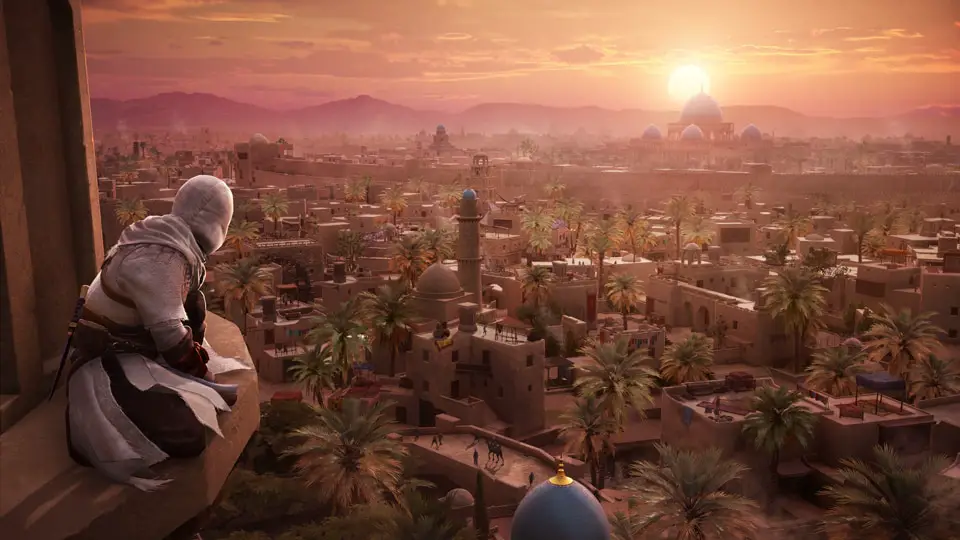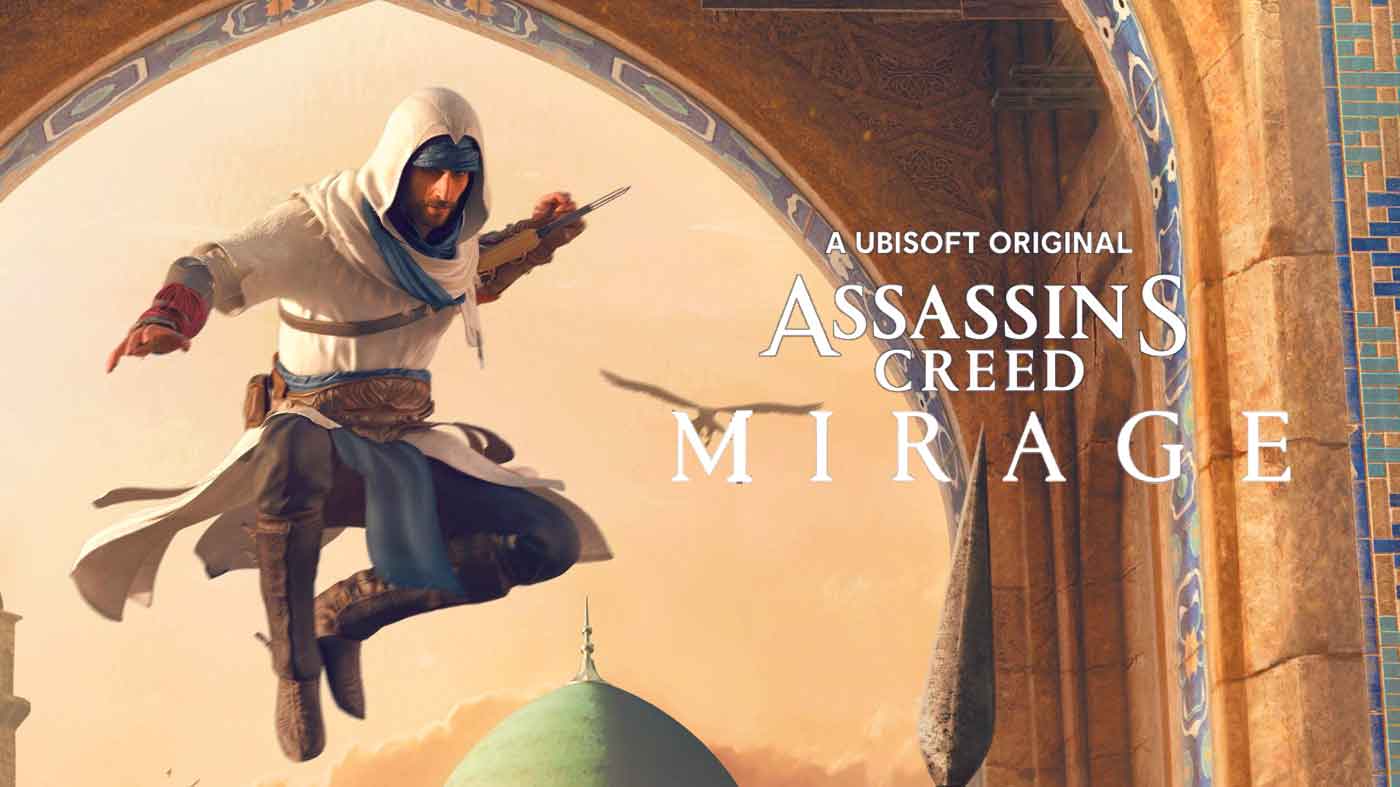The Assassin’s Creed series is the most commercially successful franchise in Ubisoft’s library and has delivered large open worlds from a wide array of historical periods for over a decade.
Assassin’s Creed Mirage is the next mainline entry in the series (13th, to be exact) and is a shift back to the design patterns of earlier games. It is currently in development by Ubisoft Bordeaux, which, up until recently, has served as a support studio.
The game is currently set to launch sometime in 2023.
How does Mirage compare to past Assassin’s Creed entries?
Assassin’s Creed Mirage is the next mainline entry in the series (13th, to be exact) and is a shift back to the design patterns of earlier games.
Unlike the sprawling sandboxes of Origins, Odyssey, and Valhalla that have tried to blend in more with the crowd in terms of RPG-like combat, progression systems, and equipment, Mirage is set to be far more condensed.
Still, other choices made in recent entries, such as the lack of attention paid to the modern storyline, making settings too big with more of the same content, and placing more of an emphasis on the supernatural, have not been well received by many.
Mirage will answer these issues and come in a size comparable to the level of content in older entries like Assassin’s Creed Revelations (2011) and Assassin’s Creed Rogue (2014).
Like every entry in Assassin’s Creed, Mirage will not abide by complete historical accuracy and will embrace enjoyment over perfecting adaptation.
What is the scope of Assassin’s Creed Mirage?

Think about a scope smaller than Black Flag, but larger than the original Assassin’s Creed.
According to Jean-Luc Sala, the art director of Mirage, the entire game takes place in the city of Baghdad during the Islamic Golden Age of the 9th century, yet is as dense as Unity’s Paris setting. There will be places to explore in the wilderness, and you can visit some key locations in areas outside the city walls.
Gameplay
Basim Ibn Ishaq, the protagonist of Mirage depicted on the cover art, is no brawler or warrior like Eivor, Bayek, or Kassandra that can withstand attacks from mobs of enemies at once. Mirage will eschew the RPG mechanics of modern titles and instead return the focus to the gameplay that defined the originals, emphasizing stealth and parkour over all other aspects.
Assassinations will require strategic approaches, laying traps, and using the hidden blade in a thick crowd of NPCs. If you get spotted, it’s better to try again later and escape. Actively taking on pursuers will likely land you a swift death.
Speaking of parkour, Basim is going to be one of the most agile playable characters in the franchise and will come packed with a plethora of skills, tools, and gadgets to navigate through Baghdad. One example, the pole vault, will allow Basim to jump over significant gaps while in the middle of running. You’ll also see a turn to the ability to vanish in combat without a trace.
Another key ability Basim will have is the ability to perform multi-kill assassinations similar to Batman: Arkham Knight’s Fear Multi-Takedown. This allows the elimination of several targets in rapid succession. Sala has stated that this feature is not capable of being used all the time and is a skill that is acquired and eventually improved.
Appealing to fans and newcomers
It seems like Ubisoft is using Mirage, along with a full line of newly announced Assassin’s Creed games, to answer fan feedback given over the years to various pain points of the franchise. They want every fan to have an entry that speaks to their interests, play tastes, and settings.
Although the game takes place a century prior to the establishment of the Creed, by no means is Mirage a reboot of the franchise. It’s a way to introduce newcomers and bring back old fans in the same way.

